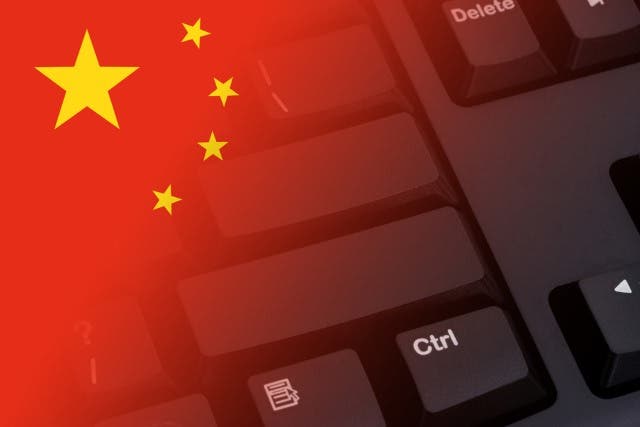The Great Firewall of China is a set of technologies and legislature that limits Internet usage within China. The Chinese government regulates the types of content that are legally allowed to be accessed and blocks many websites and services.
This Internet censorship is in place for several reasons. China believes in “internet sovereignty.” This principle dictates that the Internet access inside the country is falls under its sovereignty and control. The ruling government party uses this control to limit dissent in many forms and to block content that’s critical of China. For example, the Chinese language Wikipedia is not accessible.
China also promotes domestic businesses by blocking foreign Internet giants from operating certain services. Since China’s population exceeds 1.3 billion people, the domestic companies don’t need to worry about competing on a global scale when they have a virtual monopoly within their home country.
Chinese Versions of Popular Internet Properties
Due to the government promotion of domestic businesses, many popular Internet properties have Chinese equivalents that dominate this market. For example, Baidu replaces Google, Tencent QQ and WeChat are messaging services similar to WeChat and SnapChat, Weibo replaces Facebook, Tencent Video is their Youtube, and Alibaba replaces many e-commerce websites. Approximately 90 percent of Chinese internet users frequent social media sites, which helps their versions of these online services maintain their market position.

The Differences Between Generations
Whether the Chinese really want to bypass the Great Firewall depends on the environment that they grew up in and the generation that they’re a part of. Older generations that saw the Internet develop and get introduced to China have a more rebellious attitude when it comes to looking at foreign websites and blocked content. This group may have been exposed to a less regulated internet or enjoyed bypassing it when the Great Firewall was first developed.
The younger generations grew up with the Chinese version of the Internet and never knew an environment were Baidu, WeChat, Weiboand others weren’t the primary services used by their peers. This group may have limited exposure to cultures outside of China if they haven’t traveled outside the country and encountered an uncensored Internet.
It’s easier and more convenient to rely on these domestic services, which leads to less motivation to explore outside its boundaries. They also went through the education system more recently than older generations, and received reinforcement throughout their schooling that the censorship and control is a good thing.
Bypassing the Great Firewall
With that being said, bypassing the Great Firewall is an accessible option for people of all technical abilities. Here are a few ways that people in China can circumvent the controls put in place by government regulations.
Virtual Private Network
The most common way to get around the firewall is to use a virtual private network. A virtual private network makes it impossible for the Chinese government to see the type of web traffic that’s going from that user’s endpoint to the rest of the Internet.
Part of the Great Firewall’s technology involves blocking specific websites and keywords. When it can’t see that data, then it becomes much harder for it to catch these connections. VPN services are readily available in China, although the government does actively combat against them so the available services may change as it shuts down businesses.

Hotels with Unfiltered Access
Some hotels offer unfiltered access via VPN’s as part of their amenity packages. Much like VPN services, the Chinese government does try to stop this from happening through a variety of deterrents, but that doesn’t eliminate it from happening entirely. These hotels are particularly attractive to foreign visitors who have less of a dependence on the Chinese social media and Internet ecosystem.
Underground Internet Cafes
When the Internet arrived in China, many people didn’t have the resources to have a computer and Internet connection in their own home. They used Internet cafes to access this resource, and then to look at blocked websites once the Great Firewall came into play. China moved to block Internet cafes from giving full Internet access, which prompted some of them to take their operations underground so they could continue providing these services to their clients.
Proxy Networks
People can use proxy networks as a way to get around the firewall by routing their traffic in a way that stops the firewall from recognizing it as Chinese traffic. This option also uses encryption to block the activity in a way that’s similar to a VPN. It’s a generally straightforward method that’s accessible to a wide variety of people.
SSH Tunneling
This is a complex networking method that routes the user’s traffic through a computer located in a country without Internet censorship. By using this option, the person can freely access the Internet without encountering any blocks from the Chinese government. People without a networking background may find it difficult to set up this method or use the software that supports it.

Onion Routing
The Dark Web uses highly encrypted and anonymous methods for directing traffic around it. TOR is a software that allows users to navigate the dark web and avoid censorship by staying off the public Internet entirely. This method is more complex than most and requires a higher level of technical understanding.
Consequences for Bypassing the Great Firewall
Consequences for routine bypassing are limited or nonexistent. Many people in China have gotten around it at some point but their activity is not concerning to the government, so they’re not prosecuted. If the government determines that someone is using these blocked resources to act against the country, the government or to organize protests, then they may receive a visit from officials or be charged with a crime.
China primarily takes action against businesses that provide services making it possible to get around the Great Firewall. By putting their resources towards companies, they can limit the number of people who have access to technology such as VPNs.
The Great Firewall is not hard to get around when people are motivated to do so. However, due to the success of Chinese websites within the domestic market, many Chinese people never feel the need to step outside its boundaries.





